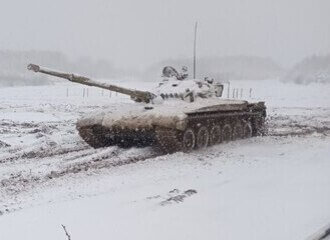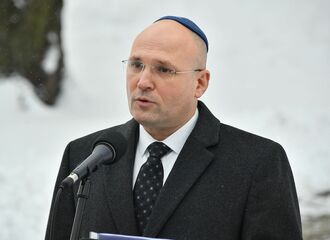Andrei Vardomatski, the head of the NOVAK laboratory, PhD in Sociology, Professor (University of Warsaw), shared his opinion on what is happening in Belarus with the newspaper Belarusians and the Market.
— If we take the NOVAK Laboratory as an example, which has existed on the Belarusian market for almost 30 years, has there ever been a period similar to the one that there is today during the entire existence of not only NOVAK, but the entire independent Belarusian sociology?
— In the history of NOVAK, there has never been such a period, from the point of view of its difficulty. Yes, it was 2010 with searches, seizures of accounts, summons to very competent authorities that understand everything in Belarus, including sociology. But in terms of the degree of rigidity, this has never happened.
— How do you explain this?
— This is a micro-sign of the macro-situation. And let me ask you a question: Was there anything like this in journalism?.. And in civil society?.. This has never happened in sociology, anything like this has never happened in any segment of society. The reason is the incomparable level of confrontation «society — regime». The protective reflex of the Belarusian establishment is greater than ever. Because the level of danger to the establishment is greater than ever.
— You have worked in different countries, including Russia, Ukraine, Lithuania, Armenia, Moldova, Georgia. Have you seen anything similar to what Belarusian non-state sociology is experiencing today?
— Never and nowhere. And the first thing our colleagues say is that we don’t understand how you survive. I mean, that our survival is an absolutely unique case. For example, Lithuania, 1991, the events around the TV tower in Vilnius, shooting and OMON. My colleagues recall today, how they conducted surveys then and how, they say, it was difficult. But when they say that, they realize that the shooting was in a small area, and the rest of the country was normal and interviews could be conducted normally. And in Belarus today, they «shoot» everywhere – I mean that the relevant competent authorities «come» everywhere.
— Is the situation with sociology in Russia similar to the Belarusian one? After all, the Russian authorities, like the Belarusian ones, are actively ‘cleaning up’ civil society (let’s recall the recent closure of Memorial), persecuting the opposition (Alexei Navalny in prison). Is sociology also under pressure?
— Yes, but there is a completely different degree of rigidity compared to what is happening in Belarus. For example, the Levada Center is recognized as a foreign agent, but continues to work. Sociology in Russia is technologically and professionally strong. There are very large and strong sociological companies, including the Levada Center, FOM, VTsIOM, etc. Firstly, Russia has a very powerful sociological tradition – it is enough to name Pitirim Sorokin, Yury Levada, Vladimir Yadov (a sociologist of perestroika, by the way, is my teacher). Secondly, the most modern, most intensive Western contacts came through Russia in the early 90s. By the way, the most famous American sociologist Ronald Inglehart worked in Russia.
— You personally knew him, am I right?
— Yes. I met him many times, conducted surveys of the World Value Survey, and my first trip to America was at his personal invitation. Speaking of Russian sociology, I can name Yury Levada, who, in fact, was my teacher. He organized training, invited many Western specialists. It should also be noted that Russia is a more market country compared to Belarus, and this determines the development of various marketing research. All global sociological services with a very large number of highly professional specialists are represented in Russia today. There are also very powerful regional sociological companies. And, finally, the top figures of the Russian establishment have a completely different culture of consumption of sociological information.
— How would you define Putin’s attitude toward the publication of his low ratings?
— Of course, he’s watching and, if you will, he’s worried. But it’s a different culture of perception of rating numbers. And it lies in the following:
A low, but published rating has a less negative impact on public opinion than the non-publication of the rating. The fact of non-publication of sociological ratings in Belarus is the most important social fact regarding the rating situation of Putin and Lukashenko.
— You say that ratings are not published in Belarus. What about ECOOM research?
— There is such a thing as a fundamental discrepancy between the individual social experience of citizens and the data offered by a number of structures.
— Alexander Lukashenka in an interview with Steve Rosenberg (BBC) said that over the year his rating has grown and today exceeds 90%…
— This is one of the manifestations of the political and communicative style of the most ‘TV’- person about Belarus. There is nothing unusual in this – there are many such statements on issues of economics, coronavirus, foreign policy, etc. The unity of style in this statement is fully observed, and there are no deviations.
— Based on the data that you have, what can be said about the mood in the Belarusian society? What are the geopolitical orientations?
— If we talk about geopolitical orientations, then we can talk about lowering the orientation towards Russia and reducing Putin’s rating in the Belarusian public consciousness. As before, the number of Belarusians who believe that Belarus should become a part of Russia fluctuates at the level of 3-5%. Given that we have been engaged in this research for many years, there is no dynamics in this matter. These findings are also supported by other studies.
Source: Belarusians and the Market


